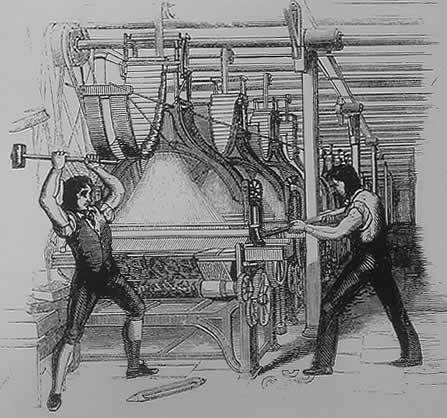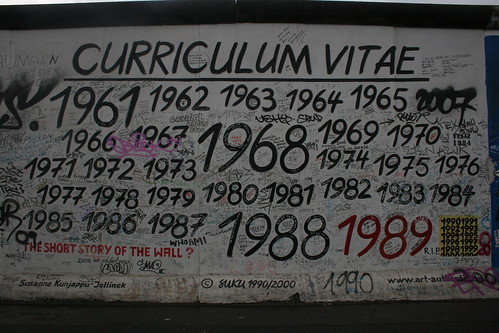
I want to build off my last post titled “
Desiring Disability” which I wrote not knowing the academic flames surrounding the issue had already been well stoked. Indeed, an academic flamethrower had already narrowed its sights directly at the target, although it remained unpublished at the time of my post; namely the new collection of essays titled
Sex and Disability editedby Robert McRuer and Anna Mollow.
The book was published at the beginning of 2012 and I just picked up a copy I had the library order and so I’ve only read Anna Mollow’s essay Is Sex Disability?, but already the book seems rapturous and sophisticated in both scope and nuance.
Mollow develops an interesting thesis most clearly stated in the penultimate sentence of the essay:
Intrinsically obscene, yet inherently asexual: rather than attempting to assume a different position within this impossible paradigm, disability theory should perhaps underscore its pervasiveness as evidence of a disability drive; as a sign, that is, that our culture’s desexualization of disabled people functions to defend against a deeply rooted but seldom acknowledged awareness that all sex is incurably, and perhaps desirably, disabled (Mollow, 310).

Mollow builds upon Robert McRuer’s crip critique of liberal humanism’s fantasy of a utopic politics which would allow all identities to harmoniously coexist. Her analysis emerges against a backdrop of psychoanalysis and queer theory.Is Sex Disability? Constitutes a ‘counterpject’ which which opposes the humanizing impulse which comprises much of the contemporary disability rights advocacy landscape. While explicitly critical of ‘politics as we know it’ thework does not completely disavow Politics, or the importance of liberalist desires for political recognition or social inclusion. Instead, it envisionsitself as what Paul Longmore descirbes as “the academic counterpart to disability rights advocacy” (Burned, 2),even if that means it is in tension with the disability rights movement at times.
Fuck Tiny Tim, please!
“Fuck Tiny Tim, please!”: rid us, please, of this most reviled textual creation. And also: if it is our cultural mandate to embody this pitiable, platitude-issuing, infantilized, and irritating figure-well, then fuck us, everyone. Fuck us because, figuratively, we are already “so fucked” by our culture’s insistence. Through this figure, that the disabled are not fuckable.
Wow.

Sound familiar?
Like an echo to an earlier insistence on fucking?
How are we to read such a statement?
Mollow deliberately and thoroughly builds upon Lee Edelman’s work in NoFuture as a means of radically refiguring even well-meaning leftists' relationship to disability. Mollow writes that “this insistence, No Future gives us the tools to understand, must be understood as a displacement; propelling every cultural representation of disability as undesirable, I propose, is a “fearful ardor,”an unacknowledged drive” (Mollow, 296).
Fuck here is meant initially as literally to eradicate, remove, ‘the hell with’ Tiny Tim. This can be interpreted in a few ways though. There’s obviously the initial conservative over-tone, such as wow that sounds like Eugenics. But there’s also Fuck the figural image of Tiny Tim, the boy from the Christmas Carol who enjoys to sit up front during church services so that he may serve as a reminder of stories where Jesus made the blind see and cripples walk again. So there is the sense that we ought to eradicate Tiny Tim as a figure of pitiable fascination or existential revulsion. And then there is another reading in which we understand Fuck Tiny Tim in the overtly sexual sense.
Mollow argues that there is an indissoluble link between sex and disability; not to conflate the actual experience of losing a limb to an IED, or the lack of a wheelchair ramp, or blindness to an orgasm. But that within our cultural imagination sex and love are understood as literally disabling; love leaves one stammering and speechless, overcome with unreasonable fits of passion, love can be blinding, or one may become ill as a result of lovesickness. Mollow develops the concept of the 'Disability Drive' or “the ways in which, in the cultural imagination (or unconscious), disability is
fantasized in terms of a loss of self, of mastery, integrity, and control, a loss that, both desired and feared, is indissociable from sexuality” (Mollow 297).
Disability and Sex dance to a contradictory, ambivalent and yet rapturous tune. One may notice a peculiar double bind persisting:
 On the one hand the disabled body is perceived as either asexual or excessively sexual. Someone with a disability may be thought of as not being able to engage in sexual acts and/or embody reproductive futurism either as a result of an impairment or disability or due to forced sterilization programs – whether really existing or enforced at the level of cultural imagination. Or the disabled body may be seen as hypersexualized from certain fetishes to the idea that sex addicts are themselves suffering from a pathological disorder to the idea that disabled people are literally unable to control their sexual desires and emotions.
On the one hand the disabled body is perceived as either asexual or excessively sexual. Someone with a disability may be thought of as not being able to engage in sexual acts and/or embody reproductive futurism either as a result of an impairment or disability or due to forced sterilization programs – whether really existing or enforced at the level of cultural imagination. Or the disabled body may be seen as hypersexualized from certain fetishes to the idea that sex addicts are themselves suffering from a pathological disorder to the idea that disabled people are literally unable to control their sexual desires and emotions.

Yet our cultural imagination simultaneously imagines and desires the loss of self, mastery, and control as the ideal sexual act. Is not the orgasm itself the passing over into a state of impotence par excellence? Is not love itself a state of mindless attraction? Mollow mentions
The Symposium as evidence of the ancient roots, but is not
The Phaedrus almost a better example in which love is very rationally categorized into a systematized understanding of Madness. Sexuality is destructive, it marks the dissolution of the subject, the breakdown of the phantasmic illusion of a seamlessly unified and whole self. Mollow further traces the genealogical associations of sex and disability to Freudian psychoanalysis which has interpreted sex as “that which is intolerable to the structured self (Mollow, 301). Mollow then proceeds to uncover this connection as more explicitly developed in Bersani’s essay “Is the Rectum a Grave?” which argues that “the most radical originality of psychoanalysis…has to do with a
disabled consciousness” (Mollow 300). Sexuality is constituted and exhausted by the “abortive, incomplete and undeveloped ‘essence’ of sexuality” (Mollow, 300). This is what is at the heartof the Disability drive, the
mystery ofsexuality is that we seek to both eradicate and repress this self-shattering tension, yet also can’t get enough of it.
Where fetishization merges with morbidity, sex meets disability.
Thus all sexuality could be thought of as a tautology for disability.
Labels: Ableism, Ablenationalism, Anna Mollow, Crip Nationalism, Crip Theory, Critical Disability Studies, cyber rhetoric, Disability Drive, Disabling Sex, Lee Edelman, No Future, Robert McRuer, Sex and Disability
 I want to build off my last post titled “Desiring Disability” which I wrote not knowing the academic flames surrounding the issue had already been well stoked. Indeed, an academic flamethrower had already narrowed its sights directly at the target, although it remained unpublished at the time of my post; namely the new collection of essays titled Sex and Disability editedby Robert McRuer and Anna Mollow.
I want to build off my last post titled “Desiring Disability” which I wrote not knowing the academic flames surrounding the issue had already been well stoked. Indeed, an academic flamethrower had already narrowed its sights directly at the target, although it remained unpublished at the time of my post; namely the new collection of essays titled Sex and Disability editedby Robert McRuer and Anna Mollow.  On the one hand the disabled body is perceived as either asexual or excessively sexual. Someone with a disability may be thought of as not being able to engage in sexual acts and/or embody reproductive futurism either as a result of an impairment or disability or due to forced sterilization programs – whether really existing or enforced at the level of cultural imagination. Or the disabled body may be seen as hypersexualized from certain fetishes to the idea that sex addicts are themselves suffering from a pathological disorder to the idea that disabled people are literally unable to control their sexual desires and emotions.
On the one hand the disabled body is perceived as either asexual or excessively sexual. Someone with a disability may be thought of as not being able to engage in sexual acts and/or embody reproductive futurism either as a result of an impairment or disability or due to forced sterilization programs – whether really existing or enforced at the level of cultural imagination. Or the disabled body may be seen as hypersexualized from certain fetishes to the idea that sex addicts are themselves suffering from a pathological disorder to the idea that disabled people are literally unable to control their sexual desires and emotions. Yet our cultural imagination simultaneously imagines and desires the loss of self, mastery, and control as the ideal sexual act. Is not the orgasm itself the passing over into a state of impotence par excellence? Is not love itself a state of mindless attraction? Mollow mentions The Symposium as evidence of the ancient roots, but is not The Phaedrus almost a better example in which love is very rationally categorized into a systematized understanding of Madness. Sexuality is destructive, it marks the dissolution of the subject, the breakdown of the phantasmic illusion of a seamlessly unified and whole self. Mollow further traces the genealogical associations of sex and disability to Freudian psychoanalysis which has interpreted sex as “that which is intolerable to the structured self (Mollow, 301). Mollow then proceeds to uncover this connection as more explicitly developed in Bersani’s essay “Is the Rectum a Grave?” which argues that “the most radical originality of psychoanalysis…has to do with a disabled consciousness” (Mollow 300). Sexuality is constituted and exhausted by the “abortive, incomplete and undeveloped ‘essence’ of sexuality” (Mollow, 300). This is what is at the heartof the Disability drive, the mystery ofsexuality is that we seek to both eradicate and repress this self-shattering tension, yet also can’t get enough of it.
Yet our cultural imagination simultaneously imagines and desires the loss of self, mastery, and control as the ideal sexual act. Is not the orgasm itself the passing over into a state of impotence par excellence? Is not love itself a state of mindless attraction? Mollow mentions The Symposium as evidence of the ancient roots, but is not The Phaedrus almost a better example in which love is very rationally categorized into a systematized understanding of Madness. Sexuality is destructive, it marks the dissolution of the subject, the breakdown of the phantasmic illusion of a seamlessly unified and whole self. Mollow further traces the genealogical associations of sex and disability to Freudian psychoanalysis which has interpreted sex as “that which is intolerable to the structured self (Mollow, 301). Mollow then proceeds to uncover this connection as more explicitly developed in Bersani’s essay “Is the Rectum a Grave?” which argues that “the most radical originality of psychoanalysis…has to do with a disabled consciousness” (Mollow 300). Sexuality is constituted and exhausted by the “abortive, incomplete and undeveloped ‘essence’ of sexuality” (Mollow, 300). This is what is at the heartof the Disability drive, the mystery ofsexuality is that we seek to both eradicate and repress this self-shattering tension, yet also can’t get enough of it. 















